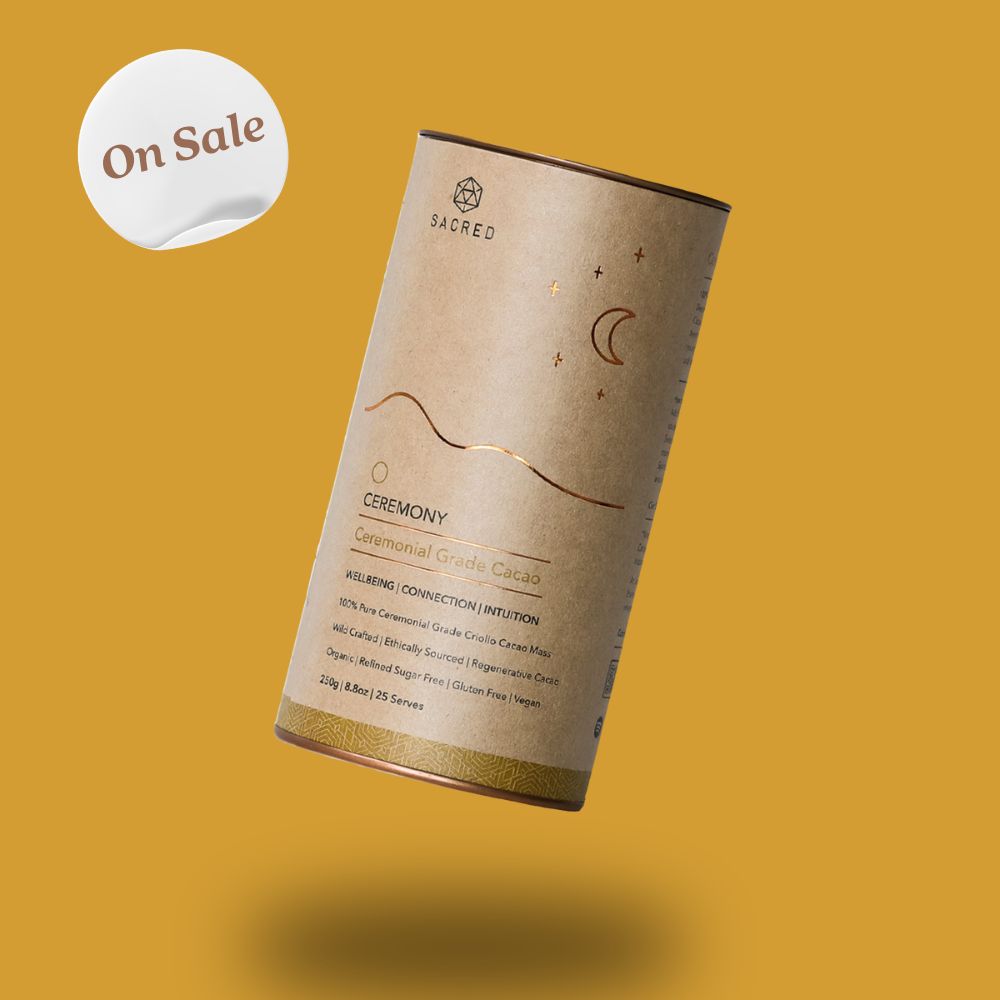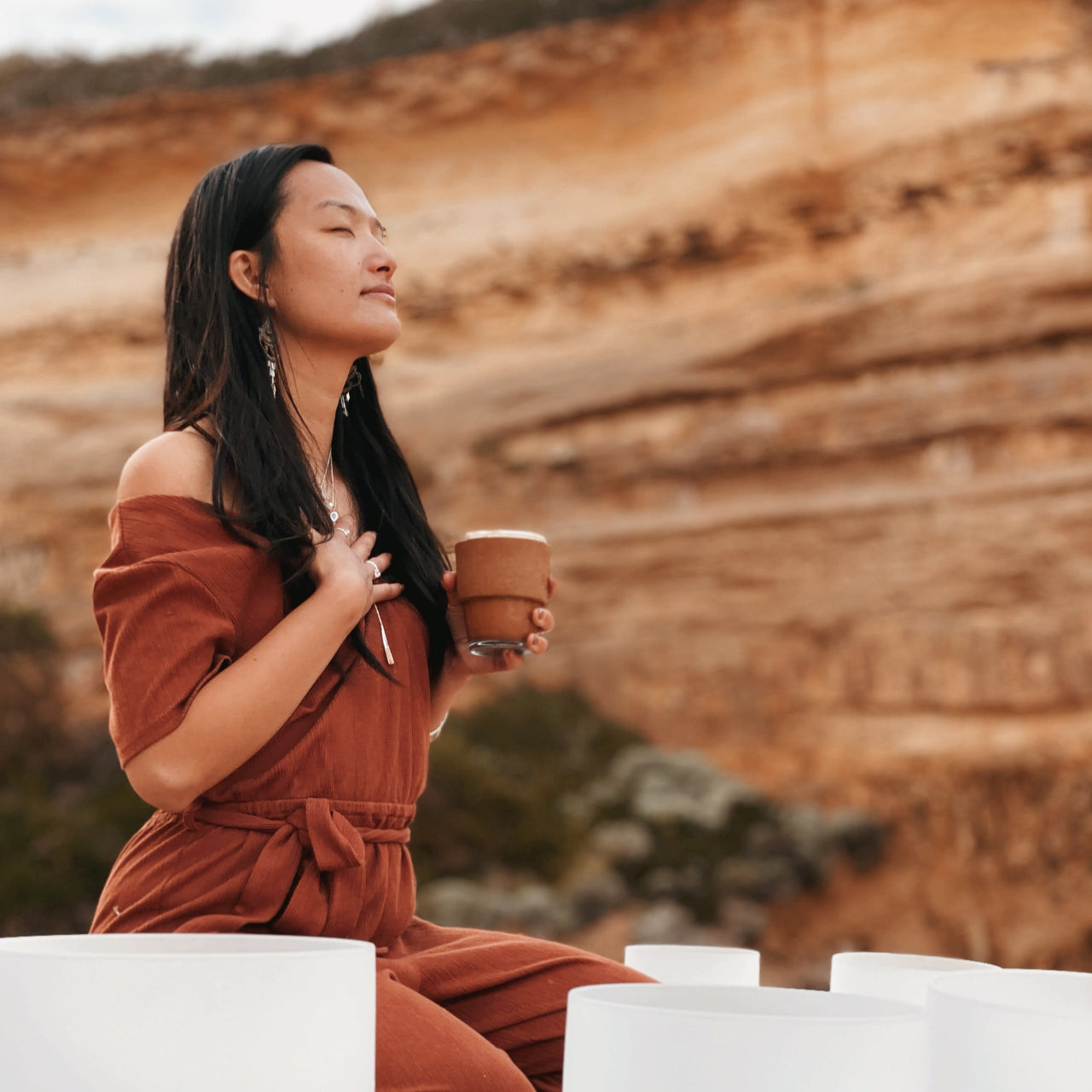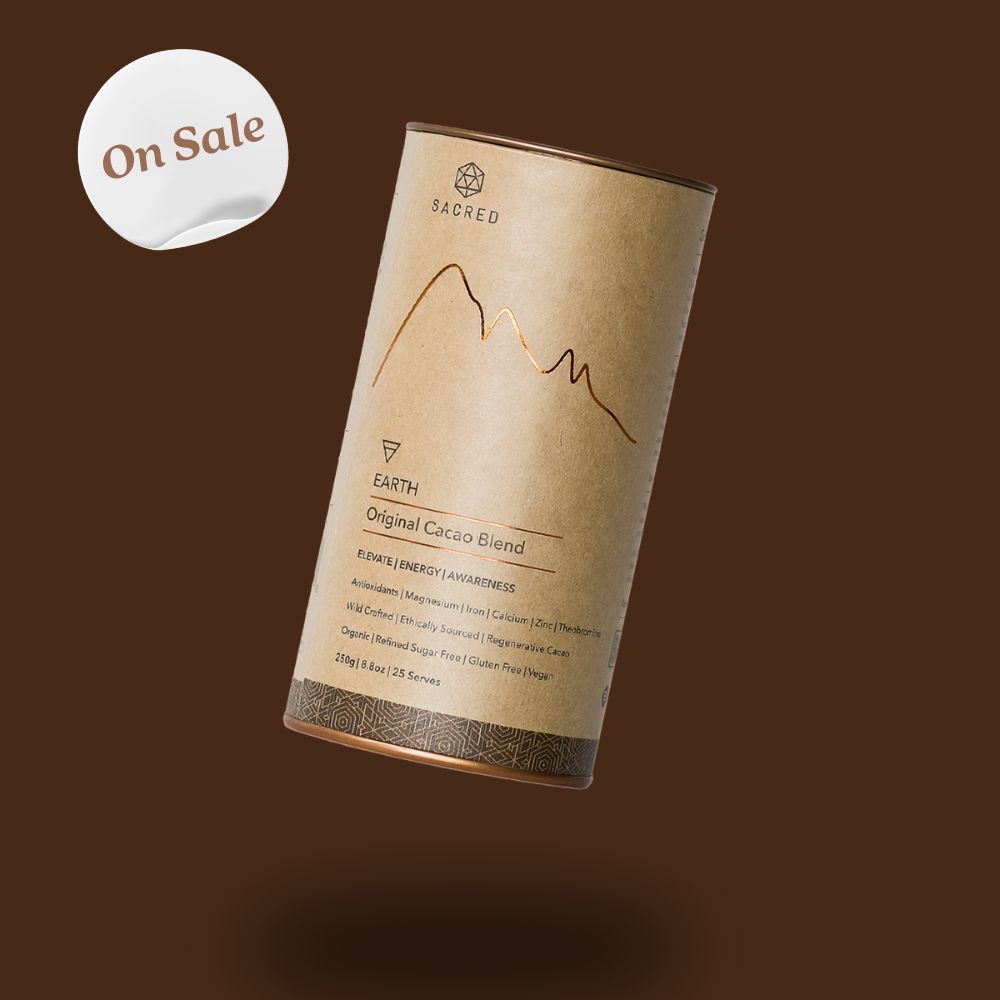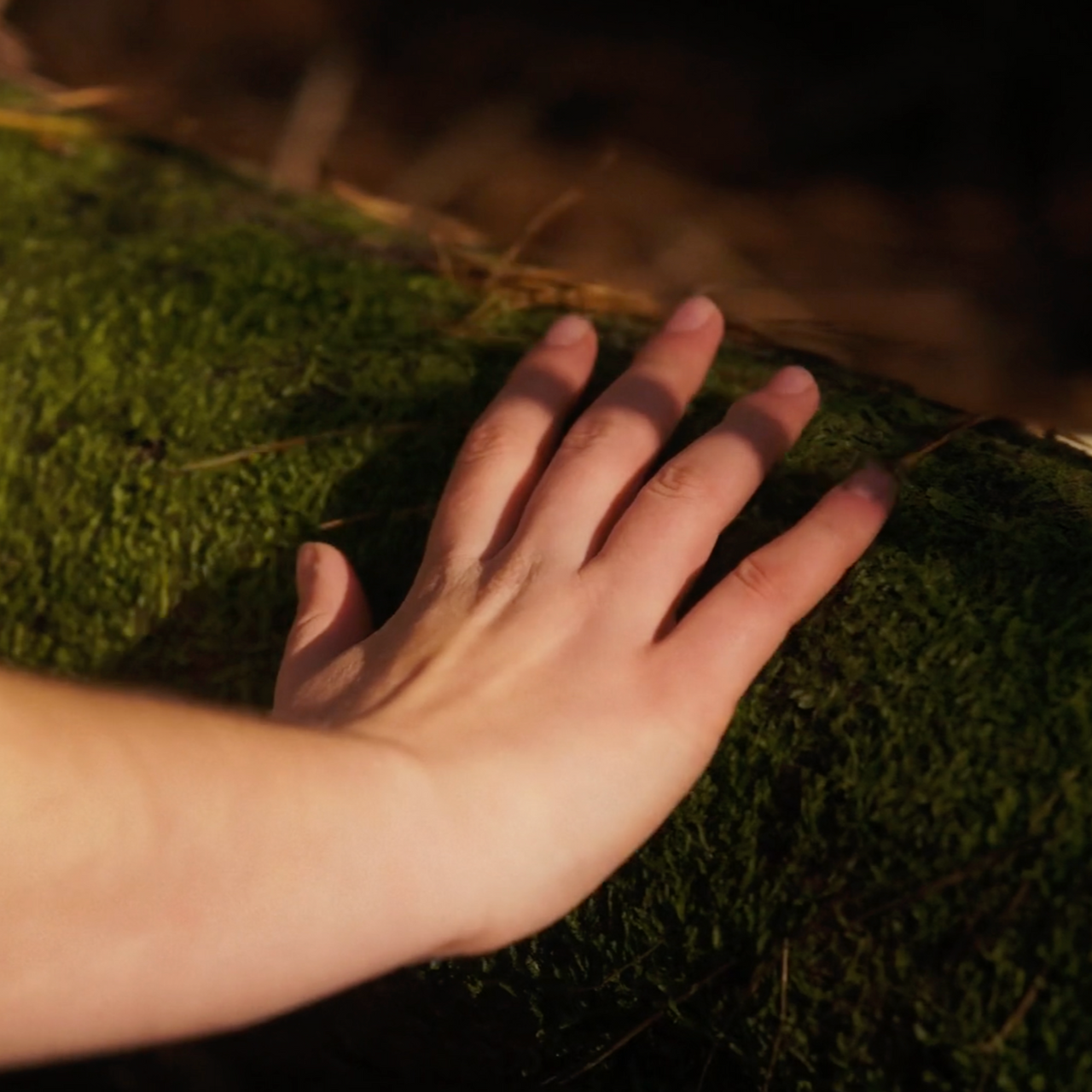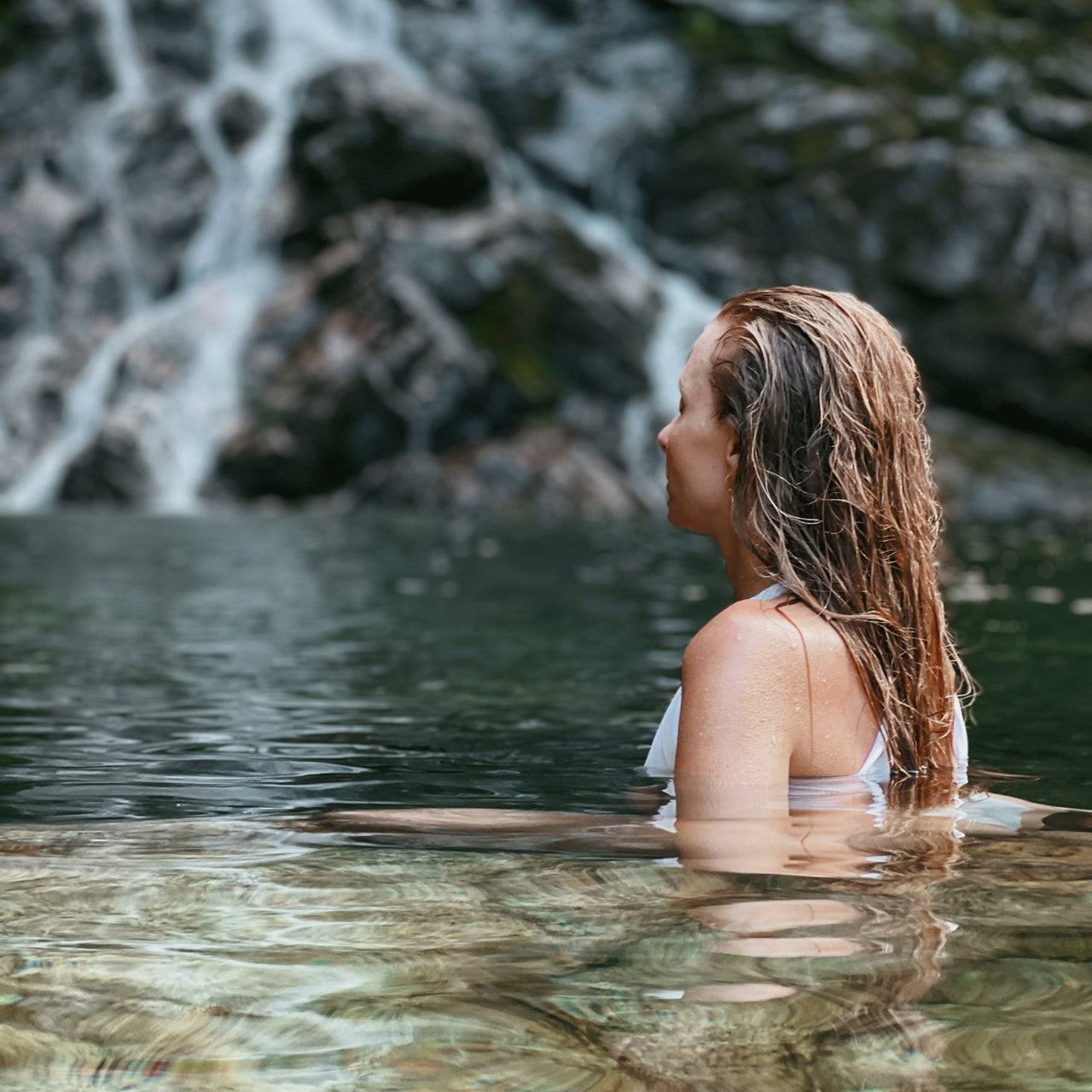There’s a moment that always takes me back: sitting in a small kitchen in Melbourne on a cold July morning, hands wrapped around a steaming mug. The rich scent rises, earthy yet sweet. Someone asks casually, “So… is this cacao or cocoa?” It’s a simple question, but it opens up a rabbit hole of history, health claims, and half-truths printed on supermarket packaging.
Most of us grew up with cocoa in biscuits, hot chocolates, and cakes. But in recent years, cacao has appeared on café menus and in wellness circles, often labelled as a “superfood.” The names sound alike, the origins are the same tree, yet the differences are more than skin deep. To make sense of it all, we need to unpack where these two diverge—and why the distinction matters for your body, your taste buds, and even the planet.

Cacao Vs. Cocoa – Why Does The Distinction Matter?
Are Cacao And Cocoa The Same Thing?
At their root, yes. Both cacao and cocoa begin as seeds from the Theobroma cacao tree, a plant native to the tropics. But what happens after the pods are cracked open sets them on very different journeys. Cacao usually refers to the raw, less processed version. Cocoa, on the other hand, is the result of roasting and further refining those same seeds.
Here’s where confusion creeps in. Food companies often use the terms interchangeably. I’ve seen products labelled “raw cocoa” in major Melbourne supermarkets, which, strictly speaking, makes little sense. This blurring of language can lead consumers to think they’re buying something healthier or more “natural” than they really are.
The Real Difference Between Cacao And Cocoa
The biggest divider is heat and processing.
- Cacao is fermented, dried, and kept at low temperatures when ground into powder or nibs. Because it isn’t roasted, it retains more of the original nutrients and antioxidants.
- Cocoa is roasted at a higher heat. This gives us that comforting, chocolatey flavour but comes at a cost—heat breaks down some of the delicate compounds like flavonoids.
I still remember running my first cacao workshop in Brunswick. I passed around raw cacao nibs for people to taste. The expressions were priceless—eyebrows raised, lips puckered, and one person exclaimed, “This tastes nothing like Milo!” Exactly. Cacao is bitter, raw, and punchy. Cocoa, softened by roasting, is more familiar to most palates.
In practical terms, here’s how the differences shake out:
|
Aspect |
Cacao (Raw) |
Cocoa (Processed) |
|
Processing |
Fermented, dried, low-heat milled |
Fermented, roasted, ground into liquor |
|
Nutrient Retention |
High – antioxidants, minerals intact |
Reduced – some antioxidants lost |
|
Flavour |
Bitter, earthy, full-bodied |
Sweeter, chocolatey, mellow |
|
Common Uses |
Smoothies, raw treats, wellness drinks |
Baking, desserts, hot chocolate |
So when someone asks, “Is cocoa the same as cacao?” the answer is no. They share a family tree, but the path they take from pod to plate makes all the difference.
Raw Cacao – Nature’s Bitter Superfood
Cacao Processing Methods That Preserve Nutrients
When I first visited a small cacao farm in northern Peru, I was struck by the patience of the process. After the pods were split open, the farmers didn’t rush. They let the seeds sit, wrapped in banana leaves, to ferment. The air was thick with a sweet, tangy smell—like overripe fruit. Only after this fermentation were the beans laid out under the sun to dry.
This step is vital. Fermentation develops the complexity of flavour we associate with chocolate. Sun-drying, rather than machine drying, helps preserve delicate compounds that high heat would otherwise destroy.
From there, if destined for “raw cacao,” the beans are crushed and ground at low temperatures into powder or broken into crunchy little pieces we call cacao nibs. Unlike cocoa, they skip the roasting stage. That’s the secret to keeping their nutrient profile closer to its natural state.
Cacao Health Benefits You Can Count On
Because cacao is less processed, it’s like comparing a fresh apple straight off the tree to one that’s been stewed, jarred, and reheated. Both are still food, but the raw version carries more of what nature packed in.
- Antioxidants & Flavonoids: Cacao is brimming with polyphenols that support heart health, improve blood circulation, and reduce inflammation. Think of it as nature’s way of keeping the blood moving freely.
- Minerals: Iron for energy, magnesium for muscles, and zinc for immunity. I often describe cacao as a natural mineral supplement—just tastier.
- Mood Elevators: Cacao naturally contains serotonin and dopamine boosters. Theobromine, a mild stimulant, adds a gentle lift without the jitters of coffee.
During one of my winter ceremonies in Melbourne, a woman who had been feeling weighed down by stress told me after drinking cacao, “It was like the fog cleared. I felt lighter, happier.” That’s the effect of these compounds at work—on the body and the spirit.
Cacao Taste And Uses In Daily Life
Let’s not sugar-coat it: raw cacao is bitter. But that bitterness is also a sign of its richness. For those who’ve grown up on sweetened cocoa drinks, the first taste can be a shock. It’s sharp, earthy, and intense—closer to 90% dark chocolate than the sweet block from the corner store.
How to use it? Here are a few ways Australians often weave cacao into daily life:
- A spoonful blended into a morning smoothie with banana and almond milk.
- Sprinkled over porridge during Melbourne’s chilly winter mornings.
- Rolled into raw bliss balls with dates and nuts, a staple at weekend markets like CERES in Brunswick.
- Brewed into a warm drink for evening meditation.
If you’re baking, keep in mind that cacao powder is more absorbent than cocoa. I’ve had more than one brownie come out like a brick until I learned to add extra liquid. Once adjusted, the depth of flavour is unmatched.
Cocoa – The Familiar, Processed Classic
From Bean To Cocoa Powder – The Processing Journey
When I ran a cacao tasting circle in Fitzroy, someone brought along a tin of supermarket cocoa to compare. It was fascinating—side by side, the difference in colour, smell, and taste was striking. The cocoa was lighter, smoother, with that comforting “chocolate cake” aroma we all know.
The journey from cacao to cocoa begins much the same: beans are fermented and dried. But instead of being milled at low heat, they’re roasted. Roasting deepens flavour, kills off bacteria, and makes the beans easier to grind. After cracking and winnowing away the shells, the nibs are ground into a thick paste known as chocolate liquor (no alcohol involved).
From this liquor, the fat—cocoa butter—is pressed out. What remains is dried and finely ground into cocoa powder. Depending on the intended use, the powder might also be alkalised (a process we’ll come to shortly). These extra steps strip away some nutrients, but they also give cocoa its recognisable taste and texture.
Natural Cocoa Vs Dutch-Processed Cocoa
Not all cocoa is created equal. In fact, I’ve ruined a recipe or two by assuming they were interchangeable. Here’s how they differ:
- Natural Cocoa: Has a pH of about 5–6, which makes it acidic. Its flavour can be sharper, sometimes fruity or citrusy. It’s usually lighter in colour.
- Dutch-Processed Cocoa: Treated with an alkaline solution to neutralise the acidity. This changes the colour to a darker brown (or nearly black in the case of heavily “dutched” cocoa) and gives a smoother, more mellow taste.
- Black Cocoa: Almost charcoal in appearance, often used in biscuits to achieve that dramatic dark colour, but with very little chocolate flavour left.
I still remember baking my first sponge with Dutch-process cocoa and being surprised by its mildness. In contrast, natural cocoa can sometimes make a cake tangier and more vibrant. Choosing the wrong one can throw a recipe off balance.
Cocoa In Baking And Cooking
This is where cocoa has become a household staple in Australia. Think of lamingtons dusted in cocoa, or that classic hot chocolate on a windy day down by St Kilda beach. Cocoa’s versatility is unmatched—but the type you use matters.
- With Baking Soda: Natural cocoa, being acidic, reacts with baking soda to create carbon dioxide bubbles—this is what helps your cakes rise.
- With Baking Powder: Dutch-process cocoa, being neutral, needs baking powder to achieve the same lift.
- For Sauces and Frostings: Either works, depending on the flavour and colour you want.
Here’s a quick comparison I often share with baking students:
|
Type of Cocoa |
Flavour Profile |
Best Uses |
|
Natural Cocoa |
Sharp, fruity, lighter |
Cakes with baking soda, tangy desserts |
|
Dutch-Process Cocoa |
Smooth, earthy, darker |
Biscuits, sauces, frostings |
|
Black Cocoa |
Very dark, mild flavour |
Oreos-style biscuits, colour-heavy bakes |
So while cacao is prized for its nutrient density, cocoa has earned its place in kitchens for its baking chemistry and familiar, comforting flavour.

Which Is Healthier: Cacao Or Cocoa?
Cacao Nutrients Vs Cocoa
When people ask me this in a ceremony, I often smile and say, “It depends on what you’re looking for—flavour or fuel.” Both cacao and cocoa have their place, but their nutrient profiles aren’t equal.
Here’s a snapshot comparison:
|
Nutrient / Property |
Cacao (Raw) |
Cocoa (Processed) |
|
Antioxidants |
Very high (polyphenols, flavanols) |
Reduced (especially if Dutch-processed) |
|
Minerals |
Rich in magnesium, iron, zinc, and copper |
Lower levels due to heat degradation |
|
Stimulants |
Theobromine (mild), some caffeine |
Theobromine + caffeine, but less in quantity |
|
Mood Compounds |
Higher serotonin and dopamine precursors |
Lower due to processing |
|
Flavour |
Bitter, earthy, full-bodied |
Smooth, sweet, classic chocolate taste |
|
Digestibility |
Can be intense, bitter |
Easier on the palate, more versatile in baking |
Cacao Antioxidants And Superfood Properties
Cacao’s reputation as a “superfood” isn’t just marketing hype. Its flavanols help reduce inflammation and support cardiovascular health. Research suggests they may also improve blood flow to the brain, which could explain why people often describe feeling mentally sharper after drinking cacao.
I’ve noticed this first-hand in morning meditation circles: people often leave feeling more present, more focused, and surprisingly energised without the crash that coffee sometimes brings.
Other benefits include:
- Heart health – lowering blood pressure and improving circulation.
- Mood regulation – boosting serotonin and dopamine.
- Brain function – supporting memory and concentration.
Cocoa Powder Health Risks To Watch Out For
Cocoa isn’t without merit—it still contains antioxidants and nutrients, just at lower levels. The bigger risks often come from what’s added to cocoa in commercial products. Sugar, hydrogenated fats, and artificial flavourings turn what could be a nourishing food into a treat best eaten sparingly.
But even in its purest form, there are a few things to consider:
- Caffeine & Theobromine: In large amounts, these can cause jitters, anxiety, or sleep problems. I once drank two strong mugs of cocoa late at night after a workshop clean-up—let’s just say sleep was a lost cause.
- Migraines: Dark chocolate can trigger headaches for some people due to tyramine.
- Kidney Stones: The oxalates in cocoa may increase the risk if consumed in excess.
- Pregnancy: Health professionals often recommend moderation, particularly in the third trimester.
- Pets: Cocoa (and cacao) are toxic to dogs and cats because of theobromine. I remind friends: what warms our hearts can harm theirs.
In short, cacao edges ahead nutritionally, but cocoa remains a safe and enjoyable option when consumed in moderation—especially if you keep an eye on added ingredients.
Making Better Choices With Cacao And Cocoa
Practical Tips For Choosing Wisely
The good news is, you don’t need a nutrition degree to make better decisions—just a bit of awareness. Here’s a checklist I often share at community talks in Melbourne:
Cacao and Cocoa Buying Checklist
- Read the Ingredients – Aim for short lists. If sugar tops the list, it’s a confection, not a health food.
- Check Processing Terms – Look for “raw” or “unroasted” if you want nutrient-dense cacao. Be wary of “Dutch-processed” if antioxidants are your goal.
- Mind the Additives – Avoid products with hydrogenated oils or artificial flavourings.
- Choose Ethical Sources – Certifications aren’t perfect, but they can help signal fairer labour and environmental practices.
- Portion Control – Even raw cacao is potent. A tablespoon in a smoothie is plenty.
As with anything, moderation is key. I tell friends: enjoy chocolate as you would a glass of wine—mindfully, not mindlessly.
Cacao For Wellness And Conscious Living
Cacao, in its raw form, has become more than just a food—it’s a ritual. In Melbourne’s winter months, I’ve often brewed cacao before meditation circles, using it as a way to bring warmth and focus. Unlike coffee, which jolts you awake, cacao feels like a gentle invitation to be present.
Here are a few local-inspired ideas for weaving cacao into everyday life:
- Morning Ritual: Blend raw cacao with warm oat milk on a frosty Victorian morning. It offers a lift without the crash.
- Mindful Gatherings: Share a cacao drink at small get-togethers, encouraging slower conversation and presence.
- Market Treats: At weekend markets like CERES or South Melbourne, raw cacao bliss balls are a staple—nutty, grounding, and nourishing.
- Creative Flow: Many artists I know sip cacao before painting, writing, or playing music, as the mild theobromine buzz opens focus without anxiety.
The key is to respect cacao for what it is: a stimulant, a nutrient source, and a sacred plant with cultural roots. By consuming with intention, you avoid overindulgence and make space for connection.
Cacao and cocoa may spring from the same pod, but their paths diverge dramatically. Cacao, with its minimal processing, preserves nutrients and offers a bitter, earthy punch. Cocoa, roasted and refined, delivers the chocolate flavour most of us grew up with, though often at the expense of antioxidants and minerals.
The “bitter truth” lies not just in the beans themselves but in the industry that shapes them—where marketing blurs labels, ultra-processed products creep into daily diets, and ethical questions remain unanswered. Still, there’s room for both cacao and cocoa in an intentional life. It’s about balance: knowing when to reach for nutrient-rich raw cacao and when to enjoy the comfort of cocoa without guilt.
For me, it comes back to respect—respect for the plant, for the people who grow it, and for our own bodies. Whether shared in a Melbourne winter circle or sprinkled over porridge at home, cacao and cocoa invite us to pause, taste, and choose with awareness.











